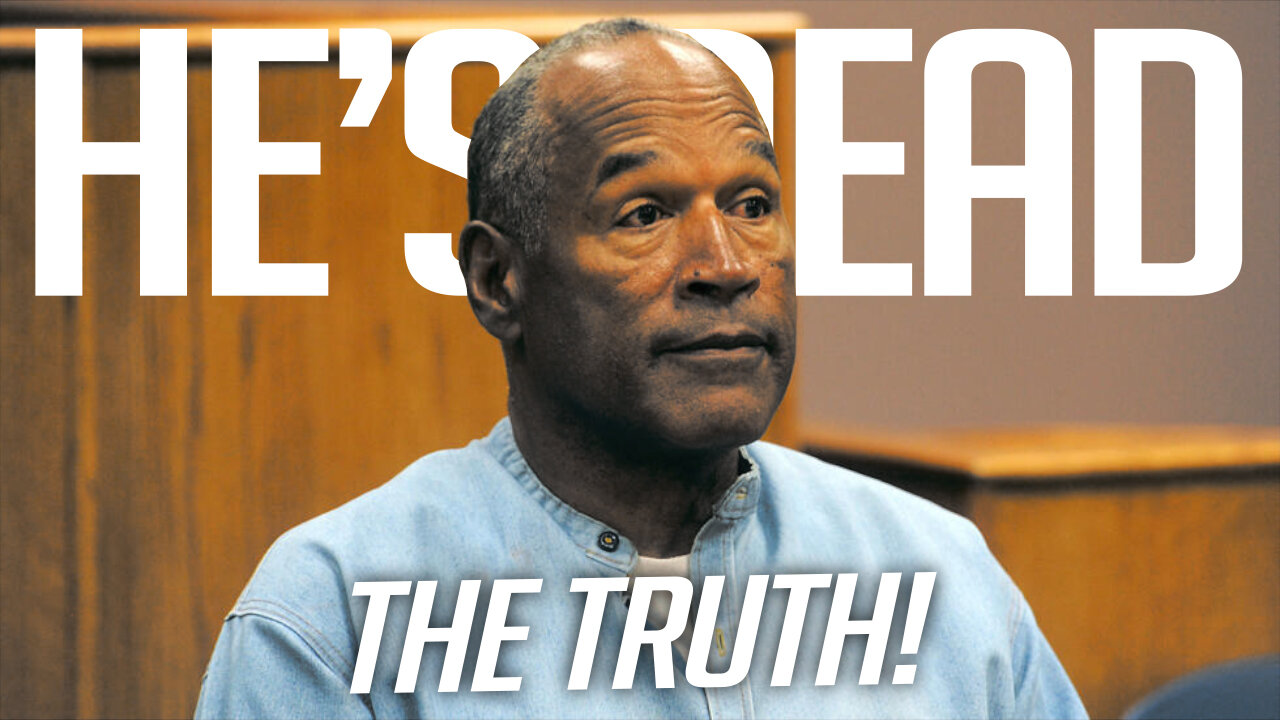Premium Only Content

O.J. Simpson Dead: The Trial That Divided a Nation, The Truth
In the annals of American history, few criminal cases have captured the collective imagination quite like the trial of O.J. Simpson. The former NFL star and actor became a household name not only for his athletic prowess but also for his alleged involvement in a brutal double murder. Decades later, the echoes of that trial still reverberate through society, revealing deep-seated racial divisions and forever altering the legal landscape.
In 1994, the bodies of Nicole Brown Simpson, O.J.'s ex-wife, and her friend Ron Goldman were discovered outside Nicole’s Los Angeles home. The gruesome crime scene shocked the nation. O.J. Simpson, once celebrated for his football career and charismatic persona, found himself at the center of a murder investigation.
Simpson assembled a formidable legal team, including civil rights attorney Johnnie Cochran, defense attorneys F. Lee Bailey and Alan Dershowitz, and DNA expert Barry Scheck. Even Robert Kardashian, father of the famous Kardashian sisters, joined the defense. On the other side, lead prosecutors Marcia Clark and Chris Darden meticulously built their case around the timeline, domestic abuse allegations, and DNA evidence.
One of the trial’s most riveting moments occurred when prosecutor Chris Darden asked Simpson to try on the infamous gloves—one found at the murder scene and the other at Simpson’s property. In front of the jurors, Simpson struggled to fit his hands into the gloves, dramatically demonstrating their apparent mismatch. Johnnie Cochran’s now-famous line, “If it doesn’t fit, you must acquit,” resonated with viewers across the nation.
The trial became a cable news sensation, captivating tens of millions of viewers. After eight months of legal proceedings, on October 3, 1995, the verdict was announced: “not guilty to all counts.” Cochran’s jubilant “Yes!” contrasted with the stunned expression on Robert Kardashian’s face. O.J. Simpson, finally breaking into a smile, mouthed “thank you” to the jury.
The Simpson trial laid bare America’s racial divisions. While some celebrated the acquittal as a victory against a biased justice system, others saw it as a miscarriage of justice. The media’s portrayal often failed to capture what the case truly meant to Black Americans—a divide that persists to this day.
Beyond its racial implications, the trial fundamentally changed how we view the legal system. The “dream team’s” tactics—casting doubt on evidence handling and accusing detective Mark Fuhrman of racial bias—left an indelible mark. The Simpson case highlighted flaws in the criminal justice process and fueled debates about race, celebrity, and the pursuit of truth.
O.J. Simpson’s legacy remains complex—a blend of athletic greatness, legal drama, and societal fractures. As we reflect on his life and the trial that defined it, we grapple with questions that transcend time: What is justice? How do we reconcile conflicting narratives? And can a single trial ever truly capture the essence of a man?
-
 1:01:17
1:01:17
The StoneZONE with Roger Stone
16 hours agoChristmas Edition: Why the Panama Canal is Part of the America First Agenda | The StoneZONE
122K46 -
 18:12:15
18:12:15
LFA TV
1 day agoLFA TV CHRISTMAS EVE REPLAY
138K17 -
 13:32
13:32
Scammer Payback
17 hours agoChanging the Scammer's Desktop Background to his Location
9.47K3 -
 4:21
4:21
BIG NEM
19 hours agoNikola Tesla's Secret to Cultivating Creativity & Genius
6.52K1 -
 15:03
15:03
The Anthony Rogers Show
1 day agoAnthony Rogers - Live at Cusumano's Pizza (Upstairs)
5.16K1 -
 4:33:48
4:33:48
tacetmort3m
1 day ago🔴 LIVE - THE ZONE KEEPS PULLING ME BACK - STALKER 2 - PART 15
71.8K12 -
 22:45
22:45
Brewzle
23 hours agoI Went Drinking In A Real Bourbon Castle
52.1K4 -
 48:36
48:36
PMG
1 day ago $4.75 earned"Parkland Parent Speaks Out On Kamala Harris Using Victims"
42.2K12 -
 4:06
4:06
The Lou Holtz Show
22 hours agoCoach Lou Holtz’s Heartfelt Christmas Message 🎄 | Family, Faith & Notre Dame Spirit 💚 #christmas
30.7K1 -
![ROSEANNE BARR - Her Journey, TRUMP, and the MAGA GOLDEN AGE! [INTERVIEW]](https://1a-1791.com/video/s8/1/M/m/B/2/MmB2v.0kob.1-small-ROSEANNE-BARR-Her-Journey-T.jpg) 51:35
51:35
Dr Steve Turley
1 day ago $22.08 earnedROSEANNE BARR - Her Journey, TRUMP, and the MAGA GOLDEN AGE! [INTERVIEW]
65.5K54